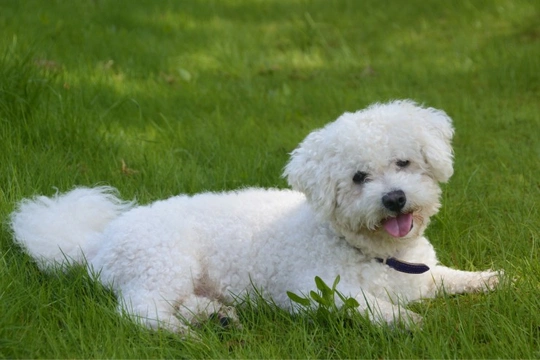Pets
Pets for studWanted petsBreedersAccessories & services
Knowledge hub
Support
Support & safety portal
Autoimmune Haemolytic Anaemia in Dogs
Autoimmune Haemolytic Anaemia is a condition that seems to affect certain breeds more than others. AIHA can be a life-threatening disorder because it's a dog's own immune system that starts to destroy the red blood cells found in their blood stream. These cells carry oxygen all around the body and to a dog's vital organs including the brain, so if the levels are compromised in any way, the result can be fatal.
What Causes the Condition?
Autoimmune Haemolytic Anaemia can either be a primary disorder or it could be caused by another underlying condition. As such, it could be a secondary health issue that develops due to dogs having developed another health problem. When AIHA is a primary disorder, for the moment just why a dog might have developed the condition remains unknown. However, when it is diagnosed as being a secondary health disorder, it has been found that it can be triggered by the following underlying causes:
- Cancer
- Chronic inflammatory disease
- Reaction to medication or certain drugs
- Certain vaccines
- Exposure to viral or bacterial infections
When AIHA is a secondary condition, a dog's own immune system starts producing red blood cell antibodies to combat any of the above health issues. When things start to go wrong, these blood cells are perceived as foreign invaders"" which need to be destroyed and the destruction can occur in a dog's entire system which includes the liver and spleen.
Signs to Watch Out For
Symptoms of AIHA are similar to those of other forms of canine anaemia which can include the following:
- Loss of appetite
- Rapid breathing
- Vomiting
- Pale gums
- Lethargy
- Easily tired
- Yellowing of gums and whites of eyes
- Excessive thirst or urination
- Dark-coloured urine
- Weakness
- Blood in faeces
When a dog suffers from AIHA, the liver cannot process the byproducts produced by red blood cells when they begin to die off. These cells as they are being attacked by a dog’s own system produce bilirubin in much higher amounts and the liver just can't cope. This in turn results in dogs having yellow gums and other mucous membranes which includes the whites of their eyes. Dogs suffering from the condition typically have enlarged livers, spleens and lymph nodes and they often develop intermittent heart murmurs.
Are Some Breeds More at Risk than Others?
Any breed can suffer from AIHA and it can affect both males and females at any stage of their lives. However, research has shown that spayed females when they reach their middle age are more predisposed to developing the condition. Other breeds that have been reported as being more predisposed to developing AIHA include the following:
- Bichon Frise
- Entlebucher Mountain Dog
- Cocker Spaniel
- Miniature Poodle
- Irish Setter
- Old English Sheepdog
Diagnosing the Problem
A vet would need to rule out any other underlying causes why a dog is suffering from AIHA. As such they would need to perform specific tests and be aware of a dog's full medical history to help determine whether they are more at risk of developing the condition. The type of tests a vet would need to carry out could include the following:
- A complete blood count
- A complete chemical blood count
- A urinalysis
Other tests a vet might recommend doing could include checking to see if a dog is suffering from any sort of infectious disorder or if parasites are causing the problem. Vets like to take X-rays and ultrasounds which helps them rule out cancers and whether the cancer has spread to other areas of a dog’s body.
Treatment Options
The first thing a vet would want to do is stabilise a dog's condition and to prevent any further red blood cells from being destroyed so that oxygen reaches vital areas and organs of the body. If they find the condition is due to an underlying cause, the vet would need to address this as quickly as possible. Dogs with AIHA need a lot of supportive care right up until their own bodies are functioning correctly and producing the right levels of red blood cells so that things get back to normal.
If a dog is suffering a severe case of AIHA, they would be given blood transfusions as a matter of urgency. The problem is that if a dog's own immune system is still attacking the red blood cells, when given a blood transfusion, the attack can become even more aggressive. As such, a vet has the option to use a blood substitute which would ensure oxygen gets to a dog's tissues and vital organs. Vets also use specific drugs to suppress a dog's immune system so it does not attack the red blood cells. However, some dogs do not respond very well to the treatment and as such alternative treatments must be found to achieve the same goal.
All-important After Care
The after-care given to dogs that have suffered AIHA is all-important and it could mean they be given further blood transfusions as well as IV fluids. In short, a dog might need to be hospitalised until their condition is stable again. Sadly, once a dog has suffered from the condition, it typically means they would need long-term care and be taken for regular check-ups for the remainder of their lives because a recurrence of autoimmune haemolytic anaemia is all too common.
""



